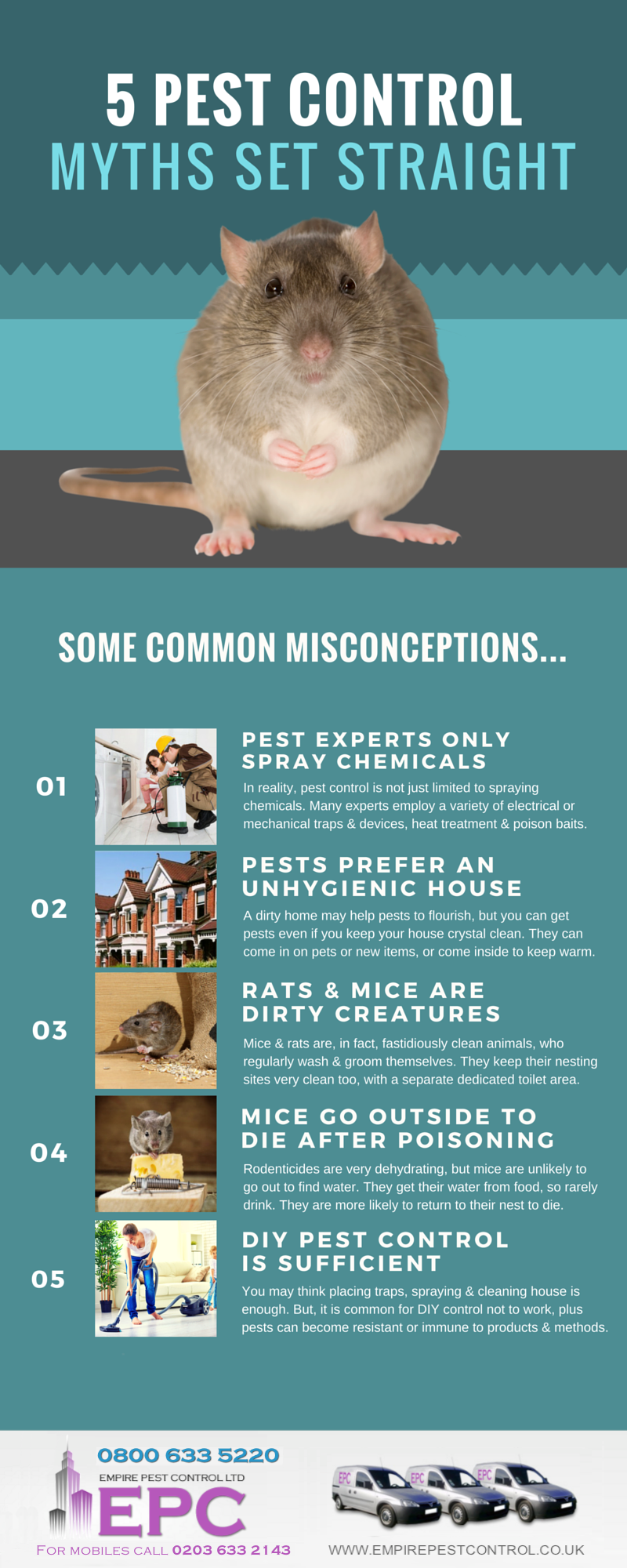The Secrets Of Insect Control Pros! Release The Power Of Advanced Techniques And Say Goodbye To Pesky Insects Permanently
The Secrets Of Insect Control Pros! Release The Power Of Advanced Techniques And Say Goodbye To Pesky Insects Permanently
Blog Article
Authored By-Evans Raahauge
Are you tired of depending exclusively on sprays to handle pests in your house or office? While sprays can be effective, pest control professionals have actually created advanced techniques that go beyond just spraying chemicals.
These methods not just offer extra efficient and durable remedies, however additionally concentrate on lessening making use of damaging chemicals. By checking out these advanced methods, you will discover a whole new world of pest control approaches that are not only effective, but also environmentally friendly.
So, are you ready to take your insect control video game to the following level?
Integrated Parasite Monitoring (IPM)
If you're looking for an efficient and environmentally-friendly approach to pest control, Integrated Parasite Management (IPM) is the solution you need. IPM concentrates on long-term avoidance and administration of bugs, instead of simply relying upon chemicals. This strategy thinks about the certain needs and actions of pests, as well as the surrounding atmosphere.
By using a mix of strategies such as organic control, habitat manipulation, and targeted chemical use, IPM intends to lower the dependence on chemical treatments and lessen harm to non-target organisms.
One key aspect of IPM is keeping track of and identifying insects accurately. This entails on a regular basis examining and analyzing the pest populace, as well as determining the details types present. By comprehending the biology and actions of bugs, parasite control specialists can develop targeted methods to interrupt their life cycle and lower their numbers.
One more essential component of IPM is making use of non-chemical control techniques whenever feasible. This can consist of physical barriers, such as setting up screens or sealing splits and openings, to stop insects from entering buildings. In addition, social practices, like proper sanitation and waste monitoring, can aid get rid of pest food sources and reproducing grounds.
When chemicals are required, IPM focuses on using them sensibly and as a last resource. This implies choosing the least hazardous and most reliable choice, using it specifically and only to affected locations, and following all safety standards. By reducing chemical use, IPM lowers the possible risks to human health and the atmosphere.
Biological Control
To further enhance the performance of Integrated Bug Management (IPM), the following subtopic we'll check out is the technique of biological control. This strategy makes use of all-natural predators or parasites to control insects.
Here are 4 key aspects of organic control:.
1. Intro of all-natural enemies: In this method, helpful insects or microorganisms are introduced to the area ravaged with parasites. These all-natural adversaries victimize the insects, aiding to lower their population.
2. Conservation of natural opponents: Instead of introducing new organisms, this strategy focuses on creating an ideal setting for existing helpful pests. This can be attained through offering food, sanctuary, and water sources.
3. Enhancement: Here, the variety of all-natural opponents is raised synthetically by reproducing and launching them into the plagued location. This aids to quickly decrease the pest populace.
4. Push-pull technique: This method incorporates repellents and attractants to adjust the behavior of parasites. Repellents press parasites away from crops, while attractants tempt them towards catch plants or areas where they can be easily regulated.
Environment Modification
Environment adjustment plays a crucial duty in insect control by changing the atmosphere to inhibit parasite invasions. By making changes to the physical qualities of an area, you can develop an inhospitable environment for parasites, making it harder for them to survive and grow.
One common approach of habitat adjustment is removing or minimizing potential food resources for pests. This can include appropriate waste management, sealing containers, and tidying up food crumbs.
Furthermore, eliminating or reducing carpenter ant treatment cost of standing water can help regulate pests like insects.
Altering the landscape by cutting trees and bushes away from structures can also protect against parasites from accessing your residential or commercial property.
best pest control company for mice .
So there you have it - the innovative methods utilized by bug control professionals surpass just spraying chemicals. Integrated Pest Management (IPM) combines various techniques to properly control parasites, while biological control takes advantage of natural adversaries to keep bug populations in check.
Habitat modification likewise plays a vital function in stopping bug problems.
Did you recognize that according to a research study, executing IPM methods decreased chemical usage by approximately 71%? This not just secures our wellness and the atmosphere yet also saves money in the long run.
